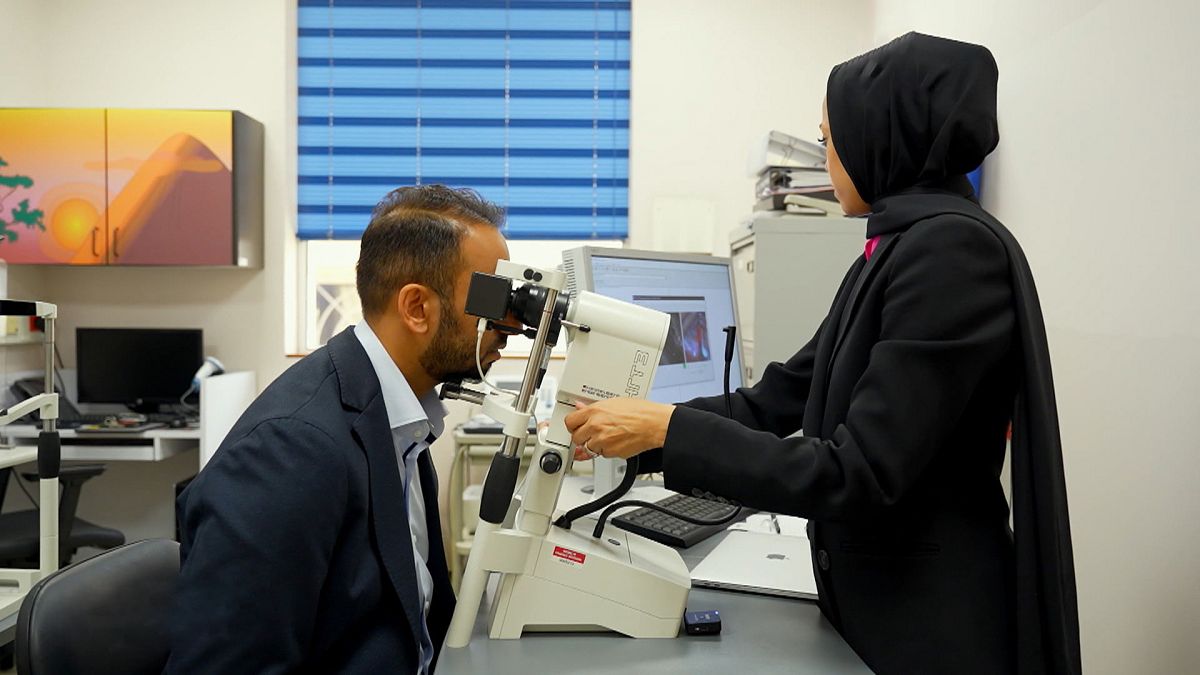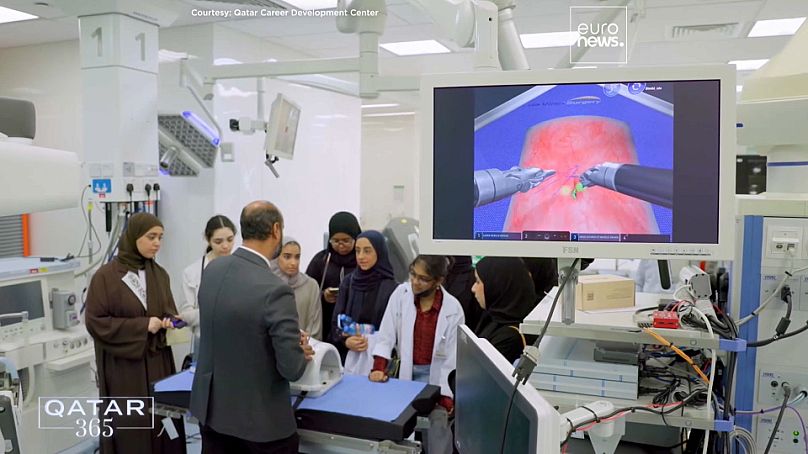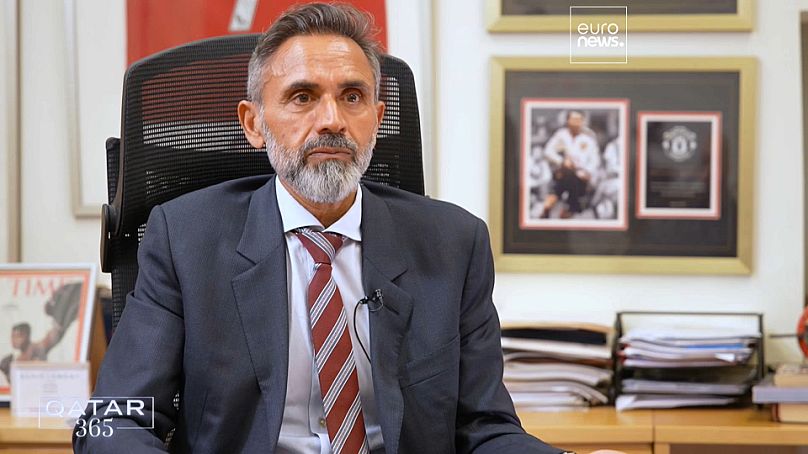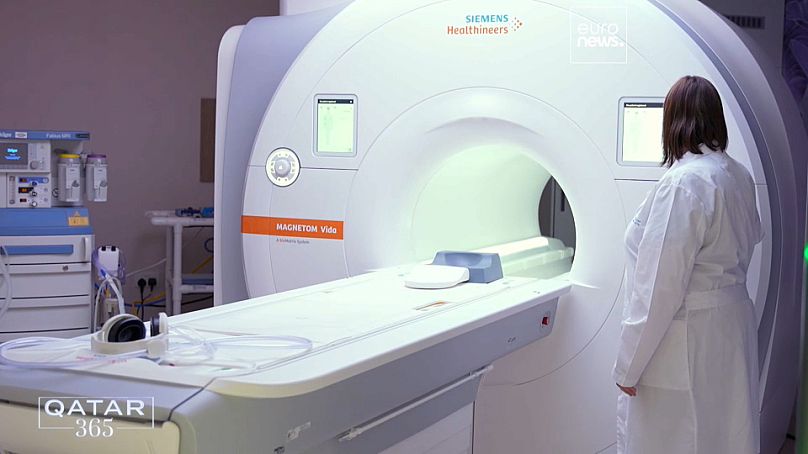In this week's episode, Euronews discovers how Qatar is mobilising students to join the healthcare sector and providing top-quality treatment by award-winning professionals
Staff shortages in the medical sector are on the rise, according to the World Health Organization. By the year 2035, there will be a global deficit of approximately 12.9 million physicians, midwives, nurses and other healthcare professionals combined.
Doha is fast becoming one of the world's leading healthcare hubs and is looking to fill the gaps to ensure better health coverage. Organised by the Qatar Career Development Centre, the fifth edition of the My Career - My Future programme is underway. It offers students real work experience across a wide range of sectors, including medicine, in a bid to boost the number of students who would like to pursue careers in the medical sector.
Euronews visited the Hamad Medical Corporation in Doha, the leading nonprofit healthcare provider in Qatar to discover how the 'My Career - My Future' initiative is helping students make more informed decisions, thanks to 100+ week-long placements and job shadowing opportunities.
This allows them to walk the halls, speak to staff and see first-hand if this is a potential career path they can see for themselves.
Noof Ahmed Alyafei, a Grade 10 student at Al Wakra Secondary School for Girls is participating in the programme and said it was a great way to see "what a doctor does during the day and how their jobs function and, how we, as a community, must appreciate them".
Diabetes - a growing epidemic
According to a recent study in the Lancet medical journal, 1.3 billion people will be living with diabetes by 2050.
People from Black African, African Caribbean, South Asian and Middle Eastern backgrounds have a higher risk of developing type 2 diabetes.
While type 2 used to be considered a life sentence - because you couldn’t get rid of it - it can be reversible through a change in lifestyle.
Euronews spoke to Qatar's top medical researcher**,**Rayaz Malik, a Professor of Medicine at Weill Cornell Medicine in Qatar. Malik has dedicated much of his work to the region’s rapid rise in diabetes.
Dr Malik explained why it is such a major concern: "The fundamental problem of type 2 diabetes in, I would say, over 70% of people, is [being] overweight, eating the wrong things, not doing enough exercise, gaining weight and as a consequence, it manifests with type 2 diabetes" said Dr Malik.
Dr. Malik has two simple steps for diabetics (a) reducing the consumption of white carbohydrates such as pasta, potatoes, bread and rice and (b) increasing the time between meals.
Dr. Malik has published more than 450 medical papers to date. He is most proud of his research on corneal confocal microscopies (a scan that uses artificial intelligence to identify neurodegenerative changes in those at risk of developing multiple sclerosis, dementia, schizophrenia and Parkinson's disease. According to Dr. Malik these scans are 90 per cent effective.
State-of-the-art medical facilities
Moulding future doctors and caregivers and being at the forefront of medical research aren’t the only pillars of growth within Qatar’s healthcare industry. Thanks to major investment, the number of luxury medical facilities in the region is on the rise, and treatment plans have also been upgraded as part of the country’s push to tap into a market that’s projected to be worth €11.1 billion (12 billion US dollars) by 2024.
It's no wonder one of Qatar’s newest healthcare institutions, Aman Hospital, offers high-quality medical care, state-of-the-art technology, and internationally recognised doctors.
From warm colour schemes and luxury interiors to expert, personalised care, Aman is looking to break with tradition and do away with the idea that hospitals need to be drab, cold and uninviting places. These welcoming touches are all part of the holistic approach, to help reduce stress and the anxiety associated with illness.
"In order to enhance patient satisfaction, comfort, and overall experience, you have to be hospitable. We focus on the sensorial experience of the patients in terms of their smell their sight and what they can hear. All of this has been proven through studies that it improves the patient’s experience in a hospital" said Hassan Elbouatmani, the Chief Hospitality & Operations Officer at Aman Hospital.
Studies also show that post-surgery support can boost a patient’s recovery. That’s why it’s such an essential part of Aman Hospital’s healthcare strategy.
"We believe that quality nutrition is an integral part of the recovery process of the patients. Hence, as part of our team here, we have an executive chef and a team in his kitchen who are solely responsible for delivering quality, nutritious meals to both the patient from a recovery perspective and to their families" continued Elbouatmani.
The hospital has also invested heavily in top-of-the-range medical equipment as Dr. Hussain Ismaeel, the Chair of Medical Services at Aman Hospital explained: "Technological innovation is a fundamental pillar of this hospital. In the radiology department, we made sure we had the latest technology and CT scanners [computerised tomography, MRI [Magnetic Resonance Imaging] and ultrasound machines. Not only does this equipment allow us to complete regular radiologic procedures, but also advanced cardiac imaging and cardiac CT.
When it comes to research, Aman Hospital has access to an international database. According to Doctor Bassem Safadi, the Chair of Surgical Services, it was the first healthcare institution outside the UK to be included in the Imperial College Private Healthcare Network, which is a renowned affiliation allowing members to share knowledge and expertise to boost patient care and operations.
Despite being one of Qatar’s newest hospitals, expansion plans are already underway. Next year, Aman Hospital is set to open a clinic in downtown Msheireb, in the heart of Doha.





